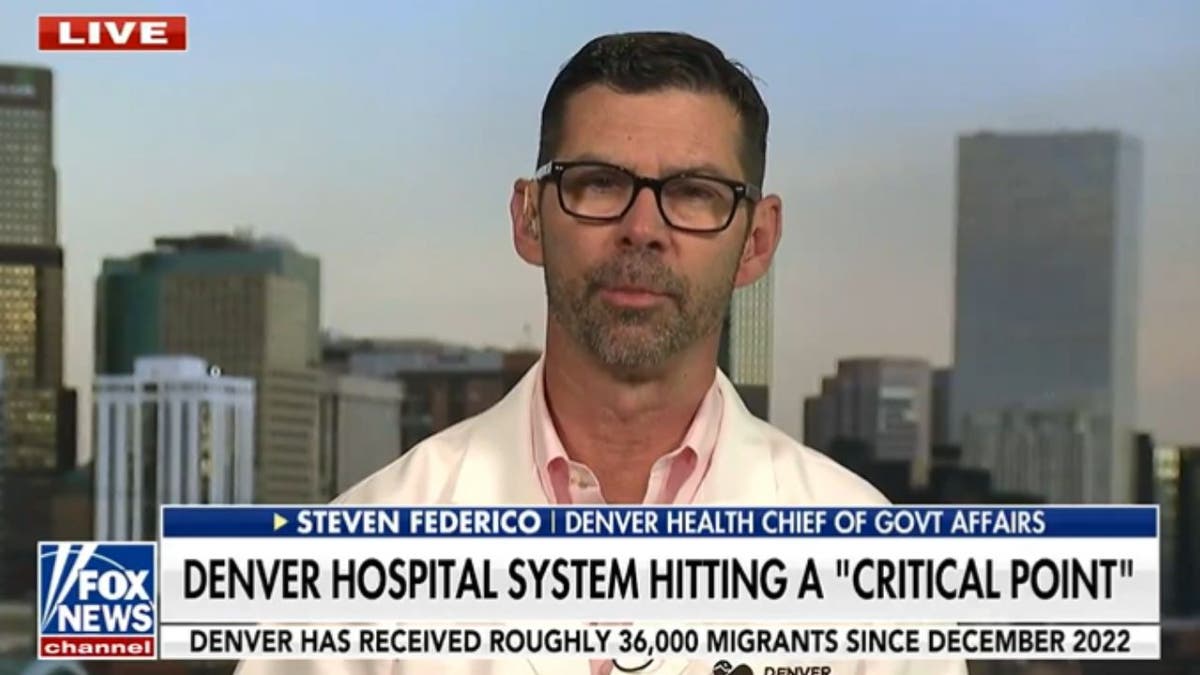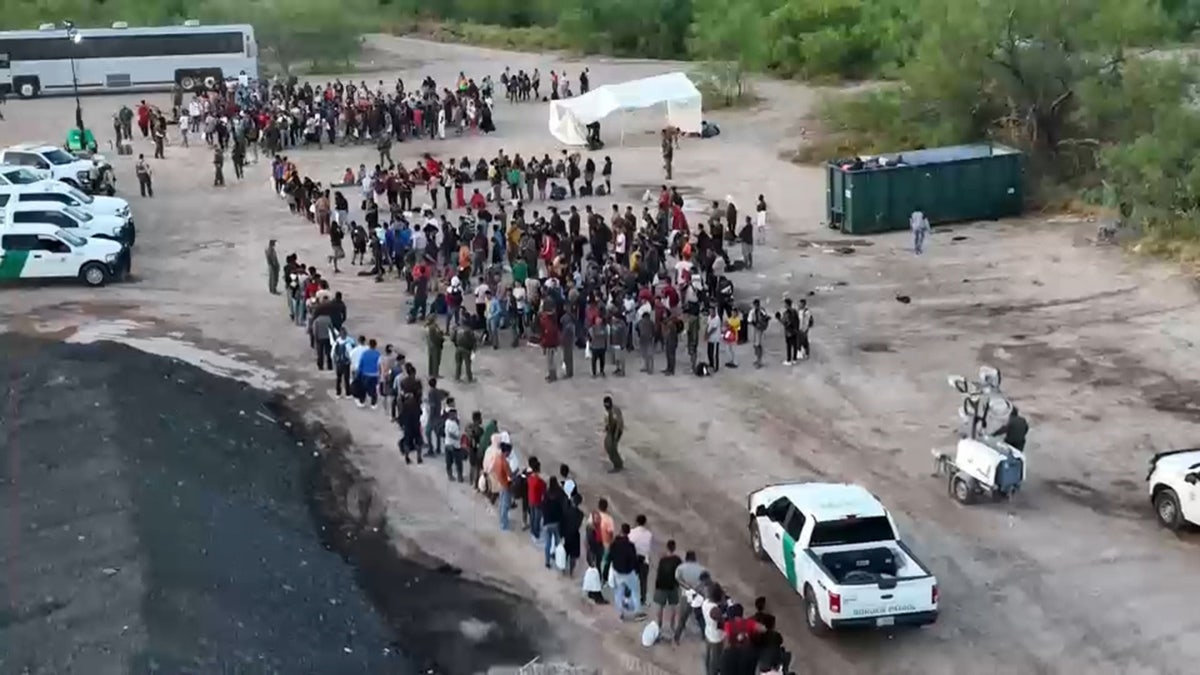
A top doctor in Denver has told Fox News the illegal migrant crisis has pushed the state’s hospital system to its breaking point and is causing a humanitarian crisis.
Denver Health Chief of Government Affairs Dr. Steve Federico said the influx of migrants is putting an enormous strain on hospitals and staff and called for federal aid to bail it out.
“We absolutely need additional public support to help provide health care to our safety net hospitals such as Denver Health,” Federico told “The Ingraham Angle” Thursday. “We’re needing to respond to this huge humanitarian crisis in our emergency rooms and our clinics. And, so, what we’re looking for is for policymakers to step up and fund appropriately the health care providers that are providing this care.”

Denver Health Chief of Government Affairs Dr. Steve Federico tells “America Reports” the illegal migrant crisis has pushed the state’s hospital system to its breaking point and is creating a humanitarian crisis. (Fox News)
NYC MAYOR ADAMS REVERSES NYPD BUDGET CUTS PLANNED DUE TO CITY’S SPIRALING MIGRANT CRISIS
About 8,000 illegal immigrants recorded about 20,000 visits to Denver Health last year, receiving services such as emergency room treatment, primary care, dental care and childbirth. The visits contributed to the system being in the red by about $22 million. Although it did receive $20 million from the state, Kaiser Permanente Colorado and private donors, according to The Denver Post. It reported a $35 million loss in 2022, the publication reported.
Last year’s losses resulted in the hospital closing 15 beds that would otherwise have been used for patients needing psychiatric or addiction treatment while employee raises and renovations had to be postponed, according to The Denver Post.
“As a pediatrician, I’ll tell you what my colleagues see every day. They see human beings coming in asking for health care, and I’m proud to say that our hospital and our health care team continue to step up and help these human beings in their times of need,” Federico said.
“My health care partners and colleagues are experiencing a lot of moral strife, staying up at night after they care for these patients, wondering if they’ll be able to get the needed medications that have been prescribed or the follow-up care that they’ll need in subsequent days or weeks. We need a better system to help these people get on their feet and to be safe and healthy,” Federico told “The Ingraham Angle.”

Migrants wait in a line to get paperwork to be admitted to shelters at a migrant processing center in Denver, Colo., in May 2023. (Helen H. Richardson/MediaNews Group/The Denver Post via Getty Images)
Colorado Gov. Jared Polis, a Democrat, echoed Federico’s calls for federal support.
“It should be no surprise that without real border security and fixing our broken immigration system, hospitals across the country are having to treat migrants who aren’t insured,” a spokesperson for Polis told “The Ingraham Angle.”
“Governor Polis reiterates his call for Congress and the president to urgently act and secure the border.
Federico told “America Reports” in a separate interview Thursday that Denver Health provided at least $130 million of uncompensated care, a small portion of which is related to recently arrived immigrants. Uncompensated care is health care or services provided by hospitals that do not get reimbursed and is provided to people who do not have insurance and cannot afford to pay.
That figure includes care for people covered by Medicaid when the rates the program paid didn’t cover the full costs, The Denver Post reported, citing Denver Health CEO Donna Lynne. About $100 million of that went to people living in Denver.

Fox News drone video shows a group of about 2,200 migrants who crossed the U.S.-Mexico border to Eagle Pass, Texas. (Fox News)
CLICK HERE TO GET THE FOX NEWS APP
“It has contributed to our financial distress,” Federico told “America Reports.”
“We need to provide basic (care) to these populations. They are coming to our hospital as patients with basic health care needs such as respiratory illness, GI illness. Some of them have asthma and diabetes. We’re seeing severe dental disease in the population,” Federico said.
“Some of them have acute illnesses as a result of their arduous journeys, living in unsanitary conditions, drinking poor drinking water.
“And, so, we’re doing the best we can from a clinical standpoint to take care of them, but we really need a system in pace to help pay for that medical care to make sure that these patients get the needed care, get the needed medication, get the needed follow-up. And the lack of a structured system to pay for that is making it extremely difficult for our clinical teams.”